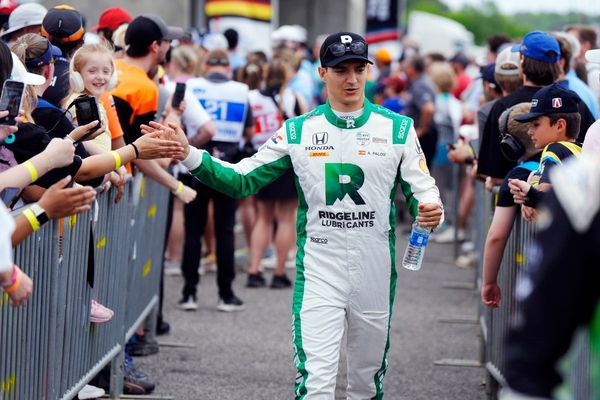
First Nations women have the right to move beyond “holding society together, healing, reducing harms and violence, and guaranteeing cohesion and healthy environments for everyone” and be free to imagine “gender justice”, the social justice commissioner June Oscar says.
More than 900 First Nations women are meeting in Canberra this week, the first national gathering of its kind, to bring “a necessary First Nations gender lens” to everything from housing to education, healing and economic development.
“There has never been a national action plan or approach to realising the rights of First Nations women and girls,” the Aboriginal and Torres Strait Islander social justice commissioner Oscar said.
For the past five years, Oscar, a Bunuba woman from the Kimberley, has been developing the Wiyi Yani U Thangani (women’s voices) program. Oscar has consulted more than 2000 Indigenous women across the nation to identify their greatest needs and aspirations.
The Wiyi Yani U Thangani report found that Indigenous women are managing the social health and wellbeing of First Nations communities largely through unpaid and unrecognised work at home, in communities and on country. Without adequate formalised support in place, women are caring for children, elders and those with disabilities, often in overcrowded housing. They are delivering frontline crisis services, supporting family to navigate courts and child protection, as well as maintaining culture.
Oscar says the conference will help design the establishment of the First Nations Gender Justice Institute, based at the Australian National University, to make sure women and girls have a say on the policies and systems that govern their lives and the lives of those they are supporting.
“Our vision for the First Nations Gender Justice Institute is that it should be a dedicated independent space for women and girls to talk about issues that affect them and their communities … such as leadership and self-determination, such as women’s knowledges in culture, language, country and water rights, lifting women and their families out of poverty,” Oscar says.
“We’ll look at societal healing and economic justice and social and environmental health and strengthening First Nations women’s political voice.”
Oscar says “gender justice” is an inclusive idea. Wiyi Yani U Thangani defines women as all First Nations women who identify as women, including transgender women, and First Nations people who are gender and sex diverse.
“We envision an intersectional movement, a movement for gender equality, that leaves no women behind.
“At the moment, women are feeling very disadvantaged and really feeling the horrible experiences of discrimination and injustice, and vilification,” Oscar says.
Oscar says the institute would be able to advise governments and any future voice to parliament on the issues First Nations women determine to be important.
“I think [the Institute] would be very complementary. I think it would be another source of providing an evidence base on and facts to such an entity as the voice.”
Oscar says she did not want to pre-empt anything that might come from the meeting.
“Child protection is important, of course it is, for all of our women across the country. I’ve sat with women who are sharing their stories through their tears, for goodness sake, around their treatment by child protection officers.
“I’ve had my own experience with them. They just treat you like you’re the alien, like you’re the new addition to the family. And somehow they have more authority than you,” Oscar says.
“But it’s a bit, risky or dangerous to say we’re really just worried about social and environmental health or societal healing. We’re worried about all of these things. Everything is important.”
The conference began on Monday with a youth forum attended by about 150 people.
“They are the next leaders. They’re stepping into this incredible space, and bringing their views, their opinions and the older generations have a lot to learn, but we have a huge responsibility to guide them as well.
“And to remind them to always respect that when you come to drink from the well, remember who dug the well,” Oscar says.
The Wiyi Yani U Thangani national summit is on at the National Convention Centre Canberra on Ngunnawal and Ngambri country until Wednesday.







